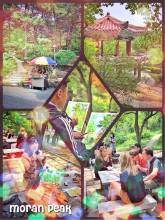Top 5 Benefits of Living in a Rural Village in Provence
My top five picks for life in rural france living. The idyllic Provence lifestyle is appealing. The mild climate of the Mediterranean, romantic vineyards, inexpensive wine, stunning lakes, and scenic hikes are all here.
living. The idyllic Provence lifestyle is appealing. The mild climate of the Mediterranean, romantic vineyards, inexpensive wine, stunning lakes, and scenic hikes are all here.

Yet, did you had any idea about that there are a few surprising advantages as well?
1. Life costs so much less!
Property in the Var, for instance, is about a portion of the expense per square meter of property in the Cote d'Azur. We paid 1,500 euros per month for a 90-square-meter small house when my family lived near Cannes. The garden resembled a postage stamp.
For roughly the same amount, you can find a house twice as big with a large garden and pool in the countryside of Provencal. The proximity of the wine domaines is a real advantage of purchasing affordable property in this area. It also feels like "home" when the villagers know your name and the shopkeepers kiss you when you enter their establishments. In contrast to Riviera cocktails, three to four glasses of local wine cost less than ten euros, so even bar prices are reasonable. Even bread and pastries cost about 20% less here than they do on the coast, as far as I can tell.
2. There will never be any traffic!
Even if your major supermarket is 20 kilometers away, you can still get there by car in about 15 minutes due to the significantly lower population density in the countryside. The equivalent goes for the closest emergency clinic, eye specialist, shopping centers, Michelin-featured cafés, huge home improvement shops, and so on.
In the wake of residing here for a considerable length of time, I don't miss the frightening gridlocks of the Cote d'Azur and their overdeveloped slopes currently shrouded in houses as opposed to thick green ranger service. We were surrounded by lush evergreens all year round in Cotignac. Even working in larger cities and commuting back to the countryside is an option; For seven years, my husband traveled to Marseille by car.

3. Wonderfully protective neighbors
It can be difficult to get to know the locals in rural France. To receive a dinner invitation from another family, I had to live here and volunteer at the parents' association for about a year and a half. Mr. Mayle, an older Englishman, may not have been in this social situation. But when we got our first invitation to eat with some locals, as a foreign woman with young children, I finally felt like I was getting paid for all the hard work I did at local associations (helping set up and run events).
You will have very trustworthy friends who will look out for you once you are "in." These individuals will drop everything on account of need or crisis (like for my situation when my carport overflowed, my vehicle stalled, or on the other hand assuming I really wanted my felines taken care of while away). Living in this area is both social and extremely rewarding due to the reciprocity of the neighbors.

4. Organic produce, clean water, and clean air
The slower pace of life helps to reduce stress, but the quality of the air, the clean water, and the abundance of locally grown produce at the village markets here are just as beneficial. A lot of the fruits and vegetables don't always have the "AB" (agriculteur biologique) label, but they are grown in the same way without harmful pesticides. The taste and freshness of the produce are unmatched by those of large supermarket chains because it is grown within a 30 km radius. In Cotignac, many of our village fountains provide year-round access to potable water. Since there aren't many cars driving by, pollution is never a problem.
With every one of the supplements in the nearby produce, one eats (and feels) better here. My French friends and neighbors also go out of their way to prepare fresh and delicious meals, such as olive bread aperitifs with artichoke and roasted aubergine dips, homemade mayonnaise with crushed garlic and local olive oil, and even their own chicken eggs. There are summer grills of neighborhood goats' cheddar imbued frankfurters, duck bosoms barbecued over a colder time of year fire, privately chased wild pig stew, tomatoes cooked in the stove with spices de Provence, and nursery apricot tartes.
I could keep going.
The best thing about this is that one rapidly figures out how to further develop cooking strategies at home, score a couple (yet not all) special kind of mystery recipes, and intrigue the hell out of different visitors that drop by. Naturally, the fact that wine, particularly the local rosé, is so inexpensive here helps. Although the cost of rosé has skyrocketed in the past two years, it is still relatively affordable at around seven (7) euros per bottle. You can set aside a lot of cash while buying 3, 5 or even 10-liter boxes of wine. In any case, engaging at home is a lot less expensive (and frequently more delectable and nutritious) than going out to any café.

5. A more approachable local municipality
If you're like me and want to have some say in how your village is run, you can try to get invited to run with a team in the town hall's next municipal election. This is simpler in smaller communities where there is a smaller active population and less fierce competition. Be aware, however, that the terms last for six years. You must commit to working in the public sector for the duration of your term after being elected to the local council.
This help responsibility could incorporate some or the entirety of the accompanying. Annual ceremonies (at least six per year) and regular council sessions are held. You are supposed to appear at the vast majority of the nearby occasions (shows, workmanship openings, celebrations, and so on.). You are required to cast votes on local legislation and budgets, as well as generate suggestions for enhancing the lives of residents. Not to mention being available at any time if the mayor requires it.
In any case, the regard acquired from local people and the undeniable improvement in French language abilities makes this work (but deliberate) appealing. When you volunteer for a public position, you have to put in a lot of time. In any case, I can't imagine a superior method for getting to know how a town functions. You learn how the locals act and function as well as what goes where. The adventures of serving on the council of a small French village could fill an entire book.














